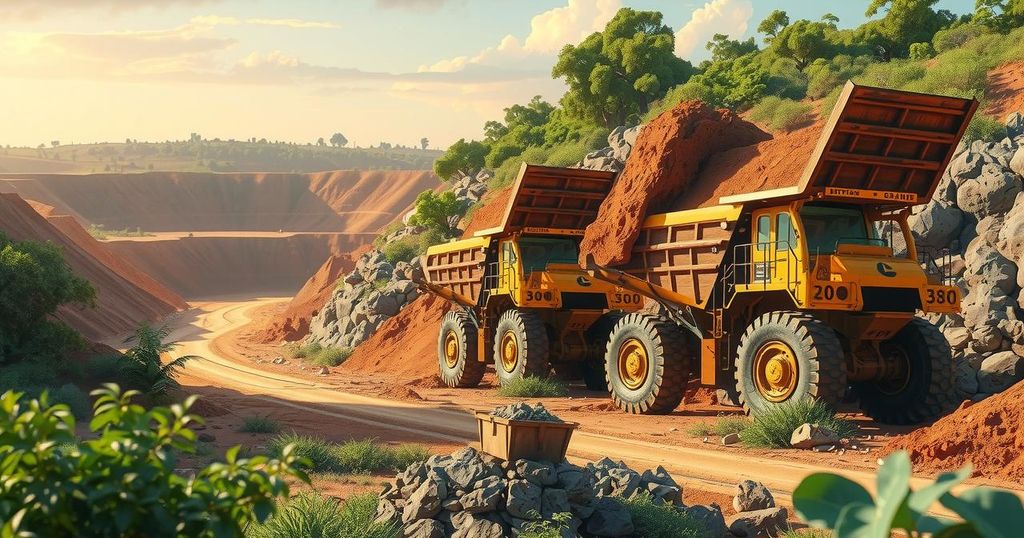Enhancing Local Content Participation in Ghana’s Mining Sector

Ghana is enhancing local content participation in the mining sector to maximize resource utilization. This includes supporting small-scale miners, promoting local procurement, and implementing new policies and training programs. The Mining in Motion Summit in 2025 will focus on local mining contributions and collaborative economic efforts.
Ghana is enhancing local content participation within its mining industry to optimize the utilization of its mineral resources. This initiative focuses on supporting small-scale miners, encouraging local procurement, and ensuring that international firms employ and train local personnel. Consequently, these efforts are fostering employment opportunities, generating revenue for local businesses, and driving GDP growth through mining sector expansion.
The forthcoming Mining in Motion Summit, scheduled for June 2-4, 2025, in Accra, will underscore the significance of local mining entities in the industry’s growth. The summit will highlight the collaboration between the government and international partners aimed at accelerating economic development via increased local participation.
Ghana’s dedication to local involvement is producing notable outcomes, evidenced by the small-scale gold mining sector employing one million individuals and indirectly supporting an additional 4.5 million, while generating over US$5 billion in export income in 2024.
To empower local stakeholders, the government has introduced critical policy reforms alongside financing and skills training programs. In January 2025, Ghana announced the establishment of the Gold Board, expected to launch in March 2025, which will centralize gold output from both small-scale and industrial mining for international exports, thereby facilitating the commercialization of gold for small-scale miners and enabling access to funding through gold sale certificates.
In August 2024, Ghana introduced a Cooperative Mining Policy aimed at creating community mining cooperatives. These cooperatives are designed to offer training, register miners, and issue concessions, thereby promoting job creation and enhancing sector formalization.
Additionally, the Environmental Protection Agency and the Ministry of Lands and Natural Resources secured World Bank funding in April 2024 to execute the Ghana Landscape Restoration and Small-Scale Mining Project. This initiative seeks to improve the formalization of small-scale mining through District Mining Committees. Furthermore, the Minerals and Mining (Local Content & Local Participation) Regulations, 2020, mandate that international companies procure Ghanaian goods and services, thus boosting local firms’ involvement in project execution and maintenance.
With numerous large-scale projects such as Goldstone’s Homase Mine, Atlantic Lithium’s Ewoyaa Project, Cardinal Namdini Gold Mine, and Newmont’s Ahafo North Project in progress, policies continue to reinforce local content participation in Ghana’s mining sector. The Mining in Motion Summit will provide a vital platform for high-level discussions and networking, addressing significant trends and advancements in local content development within the Ghanaian mining industry.
In conclusion, Ghana is making significant strides in promoting local content participation within its mining sector. Through various initiatives aimed at supporting small-scale miners, enhancing local procurement, and establishing cooperatives, the country is working towards maximizing the benefits of its mineral resources. Upcoming events, such as the Mining in Motion Summit, will further showcase these efforts and their impact on economic growth and development.
Original Source: africanminingmarket.com








